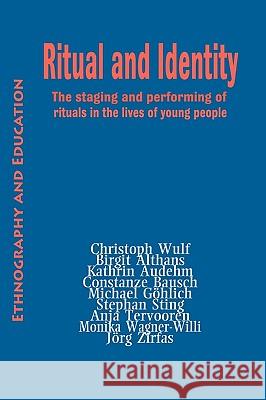Ritual And Indentity: The Staging and Performing of Rituals in the Lives of Young People » książka
Ritual And Indentity: The Staging and Performing of Rituals in the Lives of Young People
ISBN-13: 9781872767130 / Angielski / Miękka / 2010 / 187 str.
Rituals play a central role in the development of individual and collective identity. This is particularly true for young people, who are tractable to a great extent. Rituals are productive. While they were previously made a subject of discussion under the aspects of stereotyping, rigidity and violence, this examination concentrates on productive moments of rituals that contribute to making and forming the identity of communities and individuals. In ritual processes, the body, the senses and the performative actions of all parties involved play an important role. Rituals serve the community as a medium for generating and dealing with differences, for overcoming crises and for structuring transitions. Our ethnographic study shows how social relationships are formed in performative processes of rituals and ritualisations. In this sense, the focus is on the dramaturgy and organisation of ritual interactions and their effects, on scenic-mimetic expressivity, on the performance and staging character, and on the practical knowledge of social action. Four central socialisation fields of performative ritual action are analysed: the living environment of the family, transitions in everyday school life, games children play at recess and media stagings of peer groups. Ritual action is also defined as practical mimetic knowledge, and the city is characterised as performative space.
Rituals play a central role in the development of individual and collective identity. This is particularly true for young people, who are tractable to a great extent. Rituals are productive. While they were previously made a subject of discussion under the aspects of stereotyping, rigidity and violence, this examination concentrates on productive moments of rituals that contribute to making and forming the identity of communities and individuals. In ritual processes, the body, the senses and the performative actions of all parties involved play an important role. Rituals serve the community as a medium for generating and dealing with differences, for overcoming crises and for structuring transitions. Our ethnographic study shows how social relationships are formed in performative processes of rituals and ritualisations. In this sense, the focus is on the dramaturgy and organisation of ritual interactions and their effects, on scenic-mimetic expressivity, on the performance and staging character, and on the practical knowledge of social action.Four central socialisation fields of performative ritual action are analysed: the living environment of the family, transitions in everyday school life, games children play at recess and media stagings of peer groups. Ritual action is also defined as practical mimetic knowledge, and the city is characterised as performative space.











